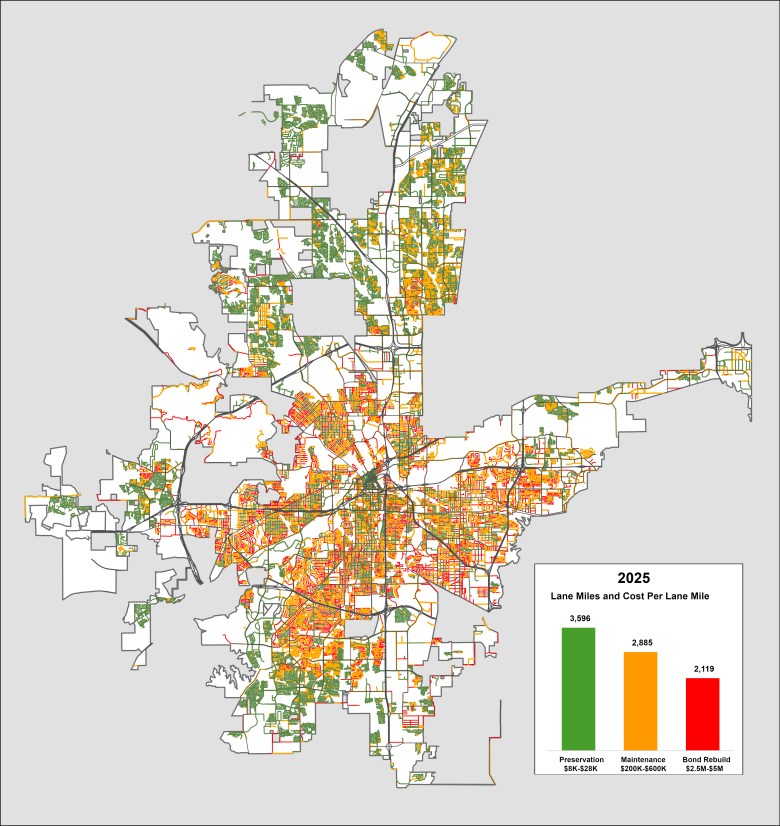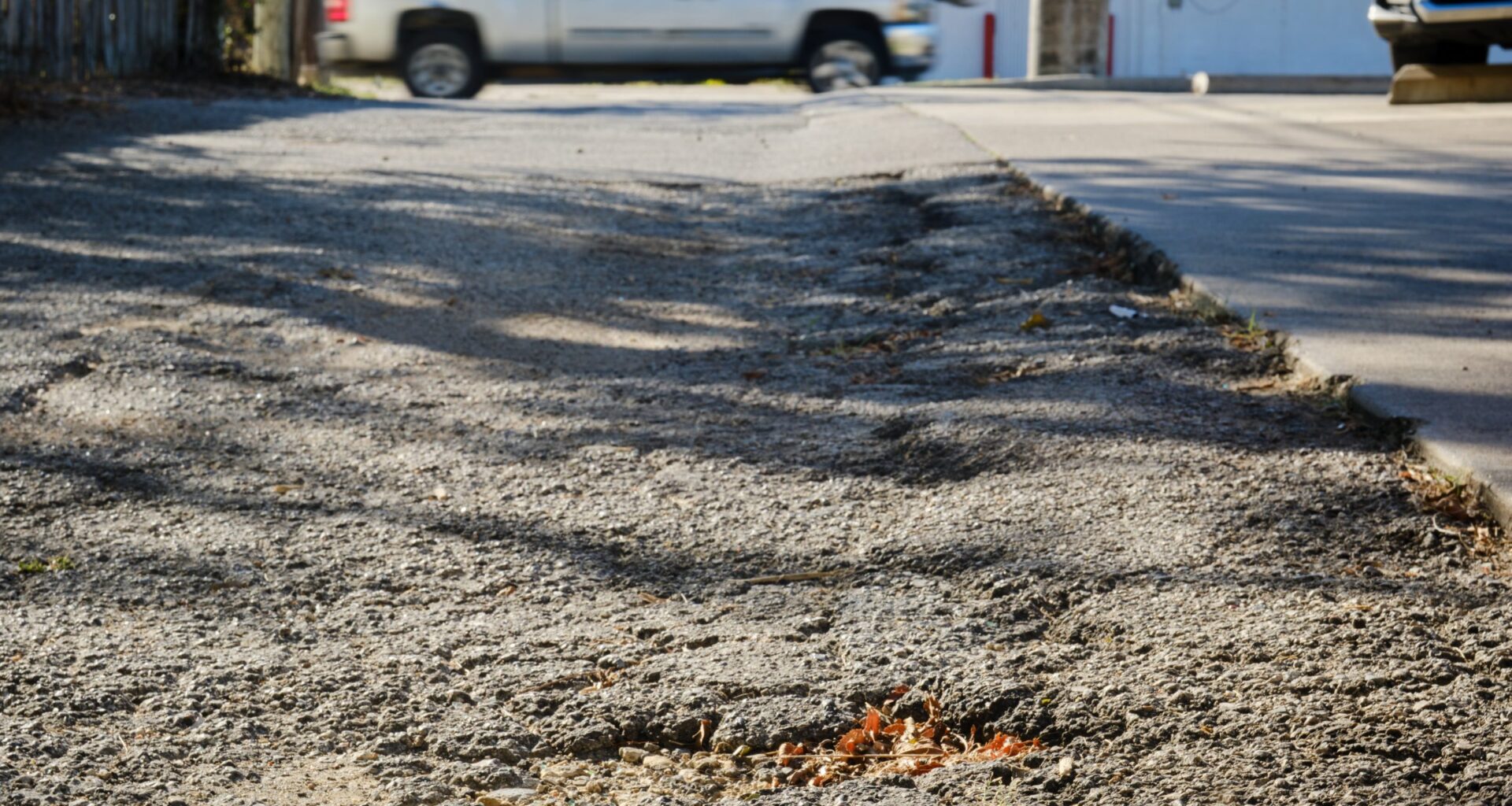Fort Worth is advancing plans for a new fee on households, landowners and businesses for fixing streets.
City Council members approved spending $615,900 to study the creation of such fees — a proposal that’s been floated for multiple years during budget talks as a solution to address worsening streets and a growing funding gap to pay for their improvements.
Fort Worth staff does not have an estimate for how much a street maintenance fee would cost residents, said Lara Ingram, public information officer for Transportation and Public Works.
In June, staff estimated the fee could cost a household about $30 a year. Ingram emphasized Tuesday that those projections are outdated and no numbers are being discussed.
Fort Worth is short about $59 million to maintain its 8,600 lane miles of streets, according to a recently launched city webpage about the potential fee. If the city implemented such a fee, potentially launching in January 2027, it would work in tandem with property tax budgeting adjustments to make up for the shortfall, according to the city’s website.
Current funding covers repairs for about 1% of streets per year, leaving 115 lane miles to fall below maintenance range annually and require more extensive reconstruction that would have to be paid for by a bond package, Ingram said in an email. Property tax spending adjustments alone can’t meet the city’s needs.
Each $1 invested in street maintenance saves $7 to $10 in reconstruction, she added. Street construction has gone up about 73% in recent years, according to the city, and around 25% of the city’s streets need bond-funded reconstruction.

In June, Lane Zarate, assistant director of Transportation and Public Works, told council members the fee would be imposed on households, apartments and businesses and schools within Fort Worth. Frequently visited commercial properties, such as grocery stores, could pay the most of any category, producing about 42% of the fee’s revenue, according to Zarate’s presentation.
The city’s website notes that a combined approach of a fee and property tax budget adjustments would “provide stable funding” for maintenance without a big tax rate hike and “spread the cost more fairly across residents and businesses.” Other Texas cities, including Austin and College Station, have similar fees.
Residents can share their thoughts about the potential fee through an online survey. City staff are sharing information about it at ongoing 2026 bond meetings across Fort Worth.
The funds approved Tuesday come from Transportation and Public Works’ budget and will go to contractor Freese and Nichols Inc., an infrastructure consulting business initially hired in 2023 to assess street maintenance funding needs.
Freese and Nichols ended that initial study in April 2024, when City Council shut down proposals for a new fee. The company now will complete a traffic generation analysis necessary to move forward with planning a street maintenance fee.
Last year, council members were skeptical that property taxes couldn’t cover street costs. They were concerned that Fort Worth wasn’t making developers foot enough of the street costs for their sprawling new neighborhoods.
When city staff again proposed the fee in June, council members were more receptive. Most asked for more information on how it would affect residents but stopped short of opposing the idea.
Zarate at the time estimated that creating a fee would take about 12 to 18 months. That timeline accounts for Freese and Nichols studies, fee refinement and public engagement.
The fee would likely be included in residents’ and businesses’ water bills, Zarate added. It would be the city’s third fee, joining the environmental protection and stormwater fees.
In August, City Council raised utility fees and lowered property taxes to make ends meet on Fort Worth’s budget. The moves resulted in the average homeowner seeing an increase of about $36.55 in their annual bills, according to staff estimates.
Freese and Nichols will collect data to produce a traffic generation analysis, develop possible rates, and plan communication and billing integration for the potential new fee.
Council members voted 10-1, with council member Deborah Peoples in dissent. The motion was on the consent agenda and saw no discussion.
Drew Shaw is a government accountability reporter for the Fort Worth Report. Contact him at drew.shaw@fortworthreport.org or @shawlings601.
At the Fort Worth Report, news decisions are made independently of our board members and financial supporters. Read more about our editorial independence policy here.
Related
Fort Worth Report is certified by the Journalism Trust Initiative for adhering to standards for ethical journalism.
Republish This Story
Republishing is free for noncommercial entities. Commercial entities are prohibited without a licensing agreement. Contact us for details.

